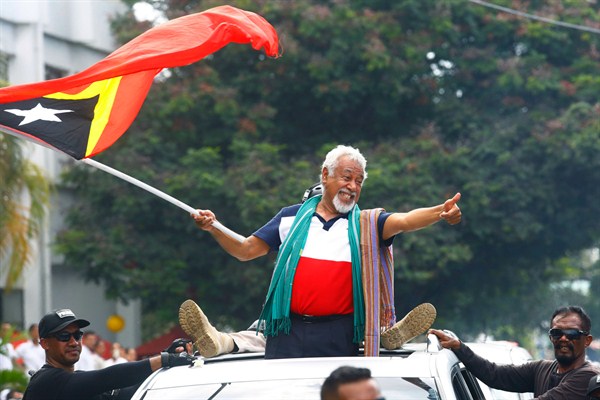On May 12, East Timor voted in early parliamentary elections, after last year’s indecisive elections produced a minority government and political paralysis. Following a campaign that was tarnished by some incidents of political violence, the Change for Progress, or AMP, coalition of opposition parties won 34 of 65 seats. A court challenge by the defeated Fretilin party over alleged irregularities was rejected by an appeals court last week, opening the way for the AMP to form a government. In an email interview, Guteriano Neves, a policy analyst based in East Timor’s capital, Dili, discusses the election results, the AMP’s policy agenda, and the implications of the elections for the country’s democracy.
World Politics Review: What explains the previous government’s failure to complete its term, in terms of policy differences and political maneuvering between Fretilin and the AMP? What factors determined the AMP’s electoral victory this time?
Guteriano Neves: President Francisco Guterres called for an early election in January, after the previous Fretilin-led government could not pass its five-year program in Parliament, as the constitution required. The AMP coalition, which combined to hold the majority of seats, refused to pass the program, due to disagreements over the president’s decision to allow Fretilin to form a minority government after last year’s elections. In the meantime, each camp blamed the other for the failure of negotiations among party leaders to salvage the government.

